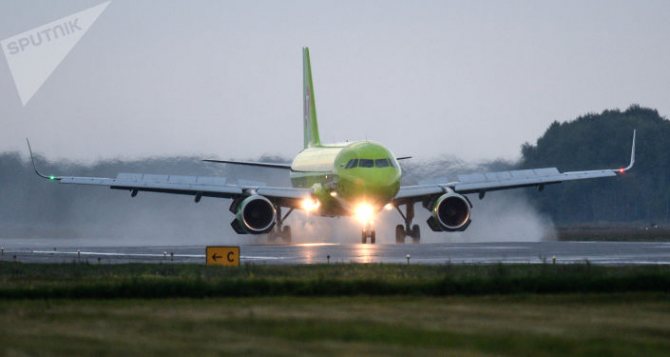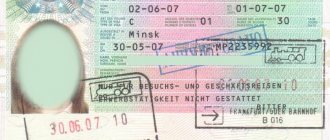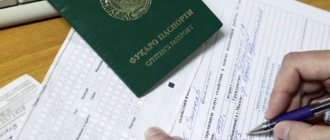Honorary award of the MSRS and the Moscow Government “Compatriot of the Year”
In 2003, at the second meeting of the board of the International Council of Russian Compatriots, which took place on April 19-20, 2003 in Larnaca (Cyprus), ICRS together with the Moscow Government established a special honorary award “Compatriot of the Year”. This honorary title will be awarded to Russians living abroad and making a significant contribution to the preservation and development of the Russian language and culture abroad, for their contribution to the protection of the rights of compatriots, and for the development of cultural, scientific and economic cooperation between foreign countries and Russia.
State program in Russia
According to Art. 11.1 Federal Law, Russian Federation:
- accepts compatriots as citizens of the Russian Federation in a simplified manner;
- helps to reduce the number of these persons who do not have any citizenship at all.
This is done, among other things, in accordance with international treaties.
There is a corresponding State program to assist its participants in voluntary resettlement, approved in 2006 by Decree of the President of the Russian Federation.
In short, the goal of the state resettlement program is to, in a simplified manner, assign the legal status of a citizen of the Russian Federation to compatriots who wish to receive it.
This solves the following problems:
- demographic;
- socio-economic.
Participants in the state program for voluntary resettlement cannot choose a region on their own. Only those subjects of the Russian Federation where the above-mentioned problems exist are available to citizens living abroad.
Who are compatriots according to Russian legislation?
Federal Law of the Russian Federation N 179-FZ, approved at a meeting of the State Duma in March 1999, and its latest edition adopted, calls compatriots:
- Persons born in the Russian Federation or the USSR, living and/or who have lived in this territory and who are custodians of the Russian language, historical and/or cultural heritage, as well as their direct descendants, i.e. children and/or grandchildren.
- Citizens of Russia who are forced to permanently reside abroad.
- Representatives of nationalities originally living on the territory of the Russian Federation, maintaining constant contact with the Russian Federation along cultural, intellectual and/or legal lines.
- Direct descendants of persons who previously lived on the territory of Russia.
- Emigrants, i.e. immigrants from the Russian Federation and/or countries whose legal successor is Russia, having the status of a citizen of any state and/or living on its territory, being a stateless person.
The Russian Federation is the legal successor of such states as:
- Russian empire.
- Russian Republic.
- RSFSR.
- THE USSR.
Persons from among the above have the right to become participants in the Compatriots Resettlement Program on a voluntary basis.
What does compatriot status give to Georgians abroad?
The head of the Public Relations Service of the Office of the State Minister of Georgia for Diaspora Affairs, Vakhtang Mamaladze, told Sputnik what privileges the so-called compatriot status gives to this category of citizens.
— Who can be granted compatriot status?
— As is known, the status of a compatriot living abroad, in accordance with the law, can be granted to an adult who meets the following requirements: is a citizen of Georgia and has lived in another state for a long time, in addition, is a citizen of another country and has origins from Georgia, or his native language belongs to the Kartvelian-Caucasian languages.
© photo: Sputnik / Maxim Blinov
TOP 10 countries where Georgians emigrated
— What privileges does this status give a citizen?
— A citizen of another state who has the status of a compatriot and is legally located on the territory of Georgia enjoys the rights and freedoms provided for by the Law of Georgia “On the Legal Status of Foreigners and Stateless Persons.” In addition, he has certain privileges. For example, if the international federation agrees, he has the right to participate in sports competitions in any sport as part of the national team on behalf of Georgia. In addition, if he is a citizen of a state whose citizens require a visa to enter Georgia, then he is authorized to cross the state border of Georgia without a visa and stay on the territory of Georgia for no more than 30 days.
At the same time, when submitting an application for Georgian citizenship, according to a government decree, he pays for services on preferential terms. At the same time, a citizen is authorized, in accordance with the procedure established by law, to receive general and higher education in Georgia with state funding. In addition to the listed privileges, a citizen with the status of a compatriot can be accepted into public service only on the basis of an employment contract if he meets the requirements established by law. Finally, a compatriot living abroad has the opportunity to participate in other targeted programs intended for the diaspora and financed by the Georgian state.

© photo: Sputnik / Alexander Kryazhev
88.5 thousand people emigrated from Georgia
— How can a citizen living abroad obtain this status?
— A citizen can obtain this status without coming to Georgia. To do this, he needs to submit an application electronically, drawn up according to the form that is posted on the agency’s website. Also required: two photographs, a passport or other document proving citizenship and identity, a birth certificate or a document replacing it, a citizen’s autobiography, a document or confirmation of his origin from Georgia or that his language belongs to the Kartvelian-Caucasian languages, as well as a motivation letter and document certifying payment for services. To submit an application, you need a webcam, headphones and microphone. The conclusion on the assignment of the status of a compatriot living abroad is prepared within 80 calendar days, the fee for this service is 50 GEL.
Belonging to compatriots abroad
Compatriots are persons born in the same state, living or having lived in it and possessing signs of a common language, history, cultural heritage, traditions and customs, as well as descendants of these persons in a direct descending line (Clause 1 of Article 1 of the Federal Law of May 24 .1999 No. 99-FZ
).
Compatriots abroad (hereinafter referred to as compatriots) are (clauses 2, 3 of Article 1, clause 1 of Article 3 of the Federal Law of May 24, 1999 No. 99-FZ
):
1) citizens of the Russian Federation permanently residing outside the territory of the Russian Federation. Their belonging to compatriots is confirmed by a document certifying their Russian citizenship;
2) persons and their descendants living outside the territory of the Russian Federation and belonging, as a rule, to peoples historically living on the territory of the Russian Federation, as well as those who have made a free choice in favor of a spiritual, cultural and legal connection with the Russian Federation; persons whose relatives are in a direct ascending line previously lived in the Russian Federation, including:
• persons who were citizens of the USSR, living in states that were part of the USSR, who received citizenship of these states or who became stateless;
• immigrants (emigrants) from the Russian state, the Russian Republic, the RSFSR, the USSR and the Russian Federation who had the appropriate citizenship and became citizens of a foreign state or stateless persons.
The persons specified in paragraph 2 of this section recognize their belonging to compatriots by virtue of self-identification, reinforcing this with public or professional activities to preserve the Russian language, the native languages of the peoples of the Russian Federation, develop Russian culture abroad, strengthen the friendly relations of the states of residence of compatriots with the Russian Federation, support public associations of compatriots and protection of the rights of compatriots or other evidence of the free choice of these persons in favor of spiritual and cultural connections with the Russian Federation (clause 2 of article 3 of the Federal Law of May 24, 1999 No. 99-FZ
).
Protection of inheritance rights of compatriots permanently residing abroad
The problem of protecting the rights of compatriots living abroad (and to a greater extent in the post-Soviet space) has acquired particular relevance and urgency in the last decade due to ongoing geopolitical changes.
Protection of the inheritance rights of compatriots, representation of their interests, both on the territory of the Russian Federation and abroad, was no exception.
Registration of an inheritance opened after the death of relatives on the territory of the Russian Federation: features, order, procedure, problems and difficulties - this is an incomplete list of questions with which citizens of the Russian Federation living abroad turn to Russian lawyers.
Below we consider the rules of law governing these legal relations, as well as a number of practical recommendations to facilitate the procedure for accepting and registering an inheritance.
To enter into an inheritance on the territory of the Russian Federation, register an inheritance, a citizen of the Russian Federation (residing abroad or having dual citizenship) needs a general civil (internal) passport of a citizen of the Russian Federation.
By agreement with the notary of the district in which the inheritance case is opened and the estate is located, it is possible to provide a power of attorney for the representative of the heir (the requirements for the power of attorney and the form must be checked with the notary), issued at the Consulate General of the Russian Federation in the country of residence of the citizen-heir.
At Russian consular offices, powers of attorney are notarized if these documents are intended for use on the territory of the Russian Federation.
A power of attorney is a written authority issued by one person to another person for representation before third parties.
Certification of powers of attorney is carried out only by personal application to the Consular Section with the obligatory presentation of a valid foreign passport of the applicant.
Powers of attorney are certified on behalf of one or more persons, in the name of one or more persons (subject to residence at the same address).
That is, to obtain a power of attorney, you must personally appear at the Consulate with a foreign passport (if available + internal passport of a citizen of the Russian Federation).
A third option is possible (by agreement with the notary) - without issuing a power of attorney and internal passport of a citizen of the Russian Federation - entry into inheritance in the presence of a foreign passport of a citizen of the Russian Federation AND a CERTIFICATE (issued by an authorized body abroad - legalized, translated into Russian, apostilled) about the permanent residence of the citizen - heir abroad.
According to a number of practicing notaries, the most hassle-free way is to register an inheritance using an internal civil passport. However, in notarial practice, there are cases of registration of an inheritance by a citizen of the Russian Federation living abroad on the basis of a foreign passport and a certificate issued by a competent foreign authority about his permanent residence outside the Russian Federation. The certificate was translated into Russian and contained an apostille. Since many issues are not regulated at the legislative level, many of them are resolved in agreement with the notary at the place of opening of the inheritance in accordance with established practice.
Rights of compatriots
As a general rule, citizens of the Russian Federation living abroad (including those with dual citizenship) enjoy the rights and bear responsibilities on an equal basis with citizens of the Russian Federation living on the territory of the Russian Federation (Article 7 of the Federal Law of May 24, 1999 No. 99-FZ
).
Foreign citizens and stateless persons who identify themselves as compatriots, during their stay on the territory of the Russian Federation, enjoy the rights and bear responsibilities on an equal basis with citizens of the Russian Federation, with the exception of established cases (Article 13 of the Federal Law of May 24, 1999 No. 99-FZ
).
At the same time, the procedure for the entry of compatriots into the territory of the Russian Federation, exit from the Russian Federation, as well as movement within the territory of the Russian Federation is established, in particular, by international treaties of the Russian Federation and Federal Law dated August 15, 1996 No. 114-FZ (Article 12 of Federal Law dated May 24, 1999 No. 99 -FZ
).
Also, compatriots are granted, in particular, the following rights (paragraph 6 of the preamble, paragraph 3 of Article 3, paragraph 1 of Article 11.1, Article 15, paragraph 6 of Article 17, Article 22 of the Federal Law of May 24, 1999 No. 99-FZ
):
1) to acquire Russian citizenship in a simplified manner;
2) registration in public associations of compatriots in accordance with the charters of these associations and receipt of documents (certificates) confirming membership in these associations;
3) access to education on an equal basis with citizens of the Russian Federation when enrolling in state-accredited educational programs, subject to their presentation of documents or other evidence confirming residence abroad and status as a compatriot;
4) support for the Russian Federation in the exercise of its fundamental freedoms, civil, political, social, economic, cultural and other rights, and in preserving its identity.
The Russian Federation also provides assistance to compatriots, in particular, in the implementation of the following rights (Clause 4, Article 5, Articles 17, 18 of the Federal Law of May 24, 1999 No. 99-FZ
):
1) to use the Russian language and the native languages of the peoples of the Russian Federation for the development of spiritual and intellectual potential;
2) establishing and maintaining connections between compatriots and connections with the Russian Federation, as well as receiving information from the Russian Federation;
3) the creation of national-cultural autonomies, public associations and religious organizations of compatriots, the media and participation in their activities;
4) participation in the work of non-governmental organizations at the national and international levels, as well as in the development of mutually beneficial relations between the states of residence and the Russian Federation.
The authorities of the Russian Federation and constituent entities of the Russian Federation can provide social support to socially vulnerable categories of compatriots on the basis of international treaties of the Russian Federation and in accordance with the legislation of the Russian Federation, as well as humanitarian assistance to compatriots who find themselves in emergency situations (clauses 2, 3 of Article 16 of the Federal Law dated 05.24.1999 No. 99-FZ
).
For compatriots who make a significant contribution to supporting the Russian Federation and developing ties with the Russian Federation, measures of moral encouragement are provided (Clause 5, Article 5 of the Federal Law of May 24, 1999 No. 99-FZ
).







